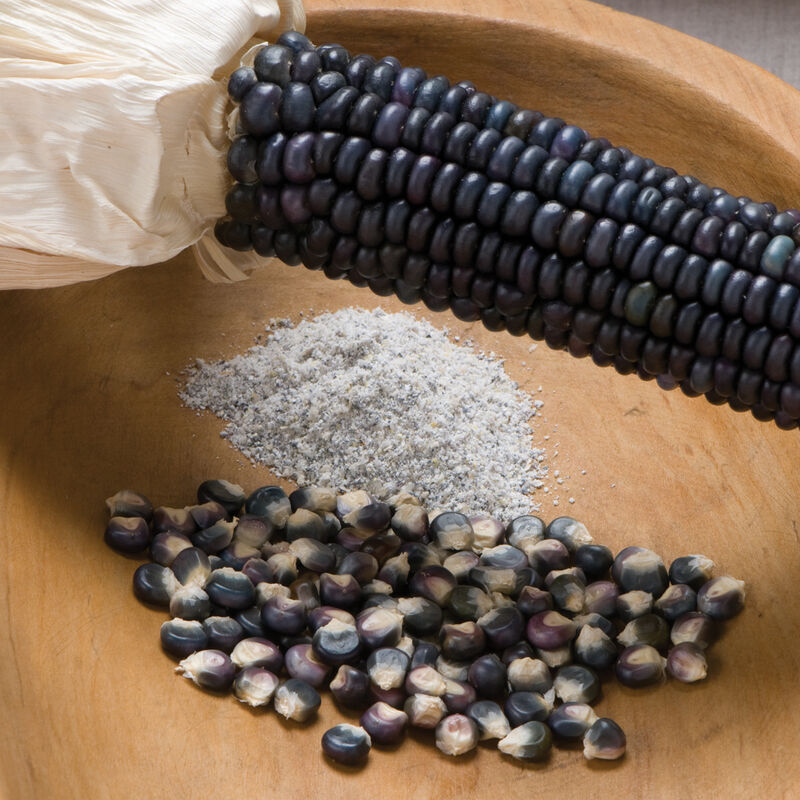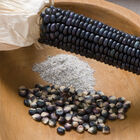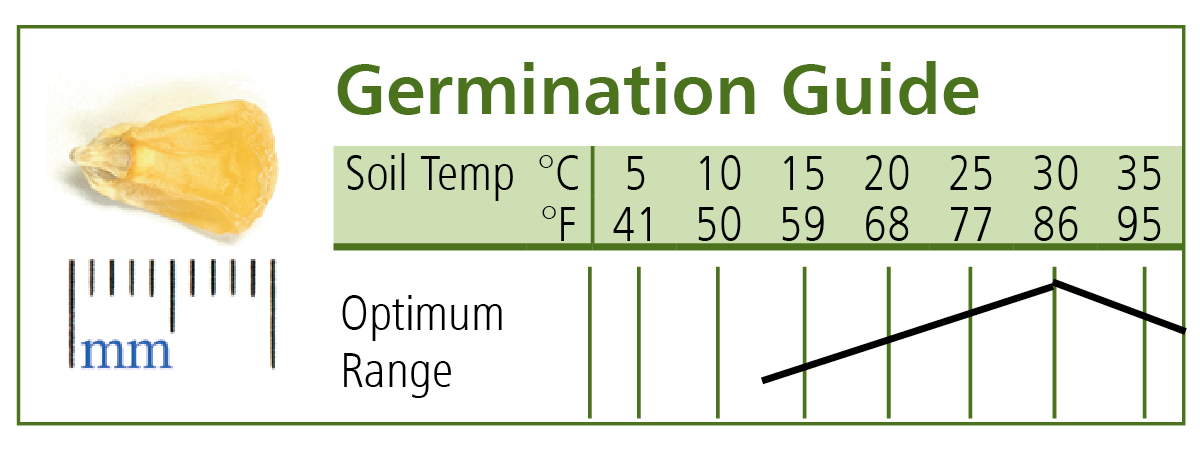Jerry Petersen Blue Organic Corn Seed
Product ID:2535G.112535G
Jerry Petersen Blue Organic Corn Seed
Product ID:2535G.112535G
Reliable blue corn for blue flour.
The 7–8" ears have good kernel configuration and excellent tip fill. Also suitable for adding color to fall ornamental displays. 7' plants. USDA Certified Organic.Specs:
- This product does not ship to the following countries: Australia, Japan, Republic of Korea, New Zealand, Thailand, Taiwan.
SCIENTIFIC NAME:
Zea maysCULTURE:
Ornamental and field corn can be planted in temperatures slightly cooler than sweet corn, which does best when soil temperatures are at least 60°F (16°C).DAYS TO MATURITY:
Maturity was recorded at our farm in Maine (Lat. 44.5°N). Corn will generally mature earlier farther south, later farther north, all environmental conditions being equal.DIRECT SEEDING:
Plant early to ensure maturity of kernels for a good, dry ripeness. Sow ¾–1" deep, 6–7" apart (or 2 seeds every 9", thinning to 1 plant), rows 30–36" apart. Increase this rate for untreated seeds. Arrange in blocks of at least 4 rows for proper pollination, which is needed for well-filled ears. Successive plantings can be made through early summer; most growers prefer to extend the season by planting a few varieties of different maturities.AVG. DIRECT SEEDING RATE:
Popcorn: ¾ lb./1,800', 1 lb./2,400 ft., 6 lb. (or 28,800 seeds)/acre at 2 seeds/ft. in rows 36" apart. Ornamental, Flour and Cornmeal: ¾ lb./600', 1 lb./800 ft., 18 ¼ lb. (or 29,200 seeds)/acre at 2 seeds/ft. in rows 36" apart.INSECT PESTS AND DISEASE:
Corn borers and earworms can be controlled with Bacillus thuringiensis (Bt). The best approach to borer control is prompt plowing in or removal and composting of cornstalks after harvest. Wireworms in the roots result from an excess of organic matter that hasn't broken down, such as sod and tilled-in mulch. They will not be a problem in stable humus conditions. Consult your local Extension office for Integrated Pest Management program information. To control raccoons, an electric fence with 3 strands placed at 3–4" normally provides adequate control.HARVEST:
Ears can be picked when the kernels are hard and glossy, and the husk has mostly dried down. If necessary, bring husked ears under cover to complete drying. Popcorn should be harvested when kernels are fully mature (hard and glossy) or they won't pop well. After husking, spread out the ears in a dry, airy place and allow to "cure" for several weeks. The ideal moisture content for popcorn is 13–14.5%. Periodic test-popping will tell you when the kernels are dry enough to store, either on the cob or shelled.SEED SPECS:
See individual varieties.PACKET:
100 seeds, sows 50'.Johnny's is committed to your success, every step of the way.
We want you, our customer, to be 100% satisfied with all of our seeds, tools, and supplies.
If anything you purchase from us proves unsatisfactory, we will either replace the item or refund the purchase price.





